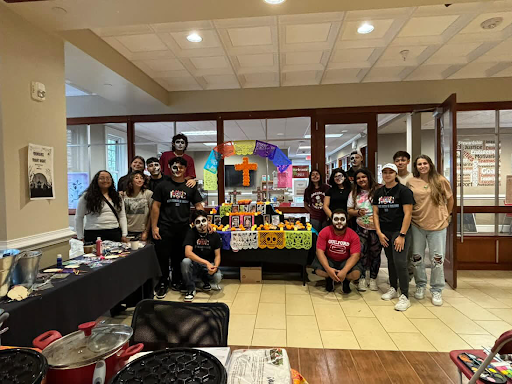At Guilford, recycling is as much a part of our daily routine as showering and putting on shoes. Which is to say, some of us might need a refresher lesson. With Recylemania raging around us, now is a good time to remind ourselves what we can and cannot recycle, so that we make the most of our recycling bins today, and every day.
Every municipality has different restrictions on what you can and can’t recycle. These restrictions vary from city to city, but in Greensboro, what we can recycle is easy to remember. Just “close the GAPPS”:
G lass
A luminum
P aper and cardboard
P lastic bottles
S teel
Some of your daily waste may be recyclable without you knowing it. Shaving cream cans are usually made of steel. Check the label or the bottom for the recycling symbol to see if your cans are recyclable once empty.
Some of your daily waste may, sadly, not be recyclable. Most paper and cardboard can be recycled, but if it is covered in food or grease, your cardboard might not make the cut. The grease can contaminate the recycling process, and will not always be sorted out properly. Check for lingering bits of food and grease before recycling takeout containers such as a pizza box from the Quakeria.
Cardboard boxes from frozen food also are not recyclable in Greensboro. These boxes are treated with a chemical that gives them “wet strength.” This is how freezer-burned Hot Pockets boxes manage to keep their strength in the cold, wet freezer. In the recycling process, cardboard is mixed with water to create a pulp. If the cardboard is treated so that it does not absorb water, it will not break down and will contaminate the recycling mix.
Greensboro only recycles plastics #1 and #2. Look at the number inside the recycling symbol to see what grade of plastic your drink bottle is. Unfortunately, Greensboro cannot recycle plastic containers, such as yogurt containers — only bottles, such as from milk or soda.
Another plastic to keep out of your bedroom bin is flimsy plastic bags, such as from bread or shopping. These cannot be processed by Greensboro’s recycling facility. Do not pitch these in the trash bin, though — Harris Teeter and other retailers accept plastic bags for recycling. Once you have recycled all your plastic shopping bags, consider using reusable bags to reduce your waste.
If you already knew these recycling tips and are still looking for ways to reduce the amount you put in your trash can, remember that composting is easier than ever at Guilford. The food waste in the dining hall and the Grill is composted via the EarthTub, but you can compost your own food scraps. Take unwanted bits of fruits and vegetables to the compost heap between the Pines and the Pines garden.
Living at Guilford, we become accustomed to the many oddities of campus. Though eschewing showers and shoes might just be a phase, hopefully recycling will become a good habit that you will maintain all your life.
Guilford is ranked second in NC in the Recyclemania competition. Keep track of our progress at sustainability.guilford.edu.





